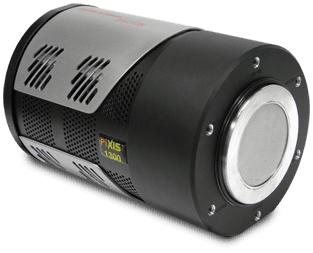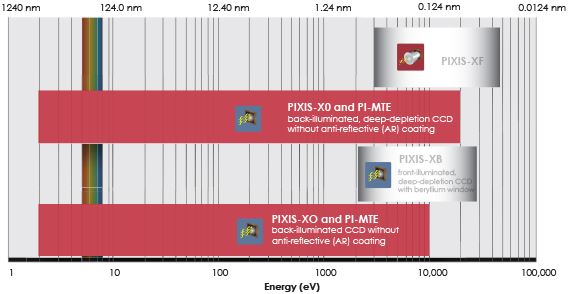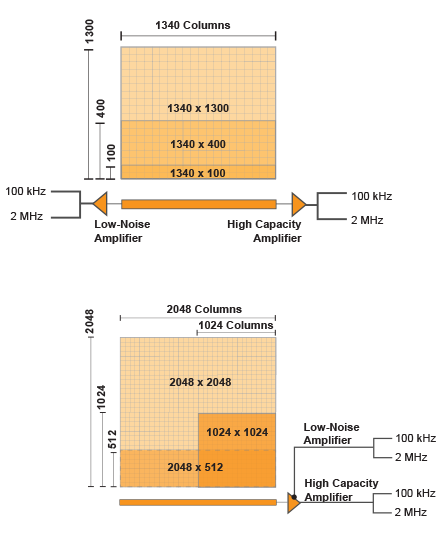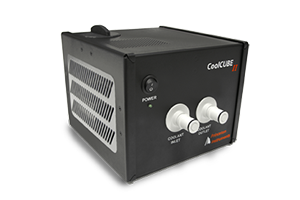
PIXIS-XB thermoelectrically cooled, direct-detection cameras are ideal for the energy range ~3 – 20 keV. Available with front- back-illuminated, deep-depletion arrays and a thin beryllium window sealing the vacuum unit for deep cooling. This protects the CCD and reduces background by filtering low-energy x-rays.
- ~3 – 20 keV x-ray sensitivity
- Beryllium (Be) window in vacuum chamber
- Flexible dual-amplifier readout design
Key Features

Ultimate X-Ray Imaging Capability
The PIXIS-XB offers high x-ray sensitivity over the 3-20 keV range, making it useful for a range of direct detection applications such as x-ray photon correlation spectroscopy, x-ray intensity fluctuation spectroscopy, and x-ray lithography.

Beryllium Window Design
The maintenance free Beryllium window design present within the vacuum chamber protects the CCD sensor within the PIXIS-XB by blocking visible light and low energy x-rays, preventing contamination. In addition, this allows the PIXIS-XB to be used in a laboratory environment, without needed to be installed on a vacuum chamber.

Ultimate Flexibility
Dual-amplifier readout design allows for optimization of system performance, with the lowest possible read noise, highest dynamic range and linearity.
With multiple sensor formats, and both front- and back-illuminated deep-depleted CCD sensor options, the PIXIS-XB offers the flexibility to fit multiple experimental set-ups.

Powered by LightField Software
Powerful and intuitive software with built-in math engine allows for the complete control of cameras and spectrographs, with real-time image analysis and spectral data.
LightField software provides seamless integration of hardware controls and direct data acquisition into programmes such as National Instruments’ LabVIEW® and MathWorks’ MATLAB®. This software also fully supports IntelliCal automated wavelength and intensity calibration.
The PIXIS-XB can also be fully controlled by PICAM SDK, eliminating any overhead that can occur when communicating through other development environments.
Family Specifications
| Energy Range | ~ 3 – 20 keV |
|---|---|
| Peak Absorption | 75% |
| Supported interfaces | USB 2.0 |
Camera Models
BR: Back-illuminated, deep-depletion
R: Deep-depletion



